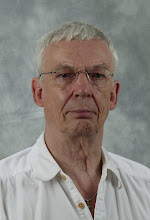There is much talk in progressive circles about restoring democracy to America. All too often this is the closing sentence of a screed that lists the multiple sins afflicting the country. It is a clarion call for a movement, a call that is totally devoid of the nuts and bolts of how we are going to achieve this.
It is the thinking of a technician and reflects the belief that life is basically a machine and that in order to restore democracy all we need do is change a battery, throw a switch or tighten a screw. Unfortunately, life ain’t like that. Life a swarmy mess of currents and counter currents, of contradictions and paradoxes. It moves at its own pace and is painfully slow to change courses. Albert Camus defined the absurd as the interface between our desire for order and predictability and the unpredictable chaos that is life.
Too many progressives, having been raised in a society that values instant gratification above all, become too easily discouraged when they discover that simply advocating for democracy fails to produce it, as if the word were an incantation that could create change as soon as it is uttered.
Christopher Hayes relates a story told by Robert Michaels of a German peasant on his deathbed who tells his sons that there is a great treasure buried in his fields. Upon his death, the sons run out and began madly digging up the fields. The treasure, it turns out, is the bumper crops the fields yield because they have been properly tilled.
Michaels went on to say, “Democracy is a treasure that no one will ever discover by deliberate search.” The implication is that democracy is a byproduct, perhaps a byproduct of the effort to build a decent and free society. It is a process that is never finished, the force of which ebbs and flows. It is a process that may go dormant for decades until life becomes so wretched that it springs back to life.
It is a process that is hobbled by a paradox Michaels called The Iron Law of Oligarchy. As Hayes explains it, “In order for any kind of party or, indeed, any institution with a democratic base to exist, it must have an organization that delegates tasks. As this bureaucratic structure develops, it invests a small group of people with enough power that they can then subvert the very mechanisms by which they can be held to account: the party press, party conventions and delegate votes.
Michaels says, “Who says organization, says oligarchy.”
All of this is done in the name of efficiency, and this is the greatest paradox of all: efficiency and freedom are mutually exclusive, which explains why the fields must be constantly tilled and why we will never be free by simply throwing a switch. It’s an unending grind.
Sunday, February 7, 2010
Subscribe to:
Post Comments (Atom)


2 comments:
You manage (0rganize) projects, not people. We were not born to be efficient, we were born to harmonize.
But we are conditioned to be efficient.
Post a Comment